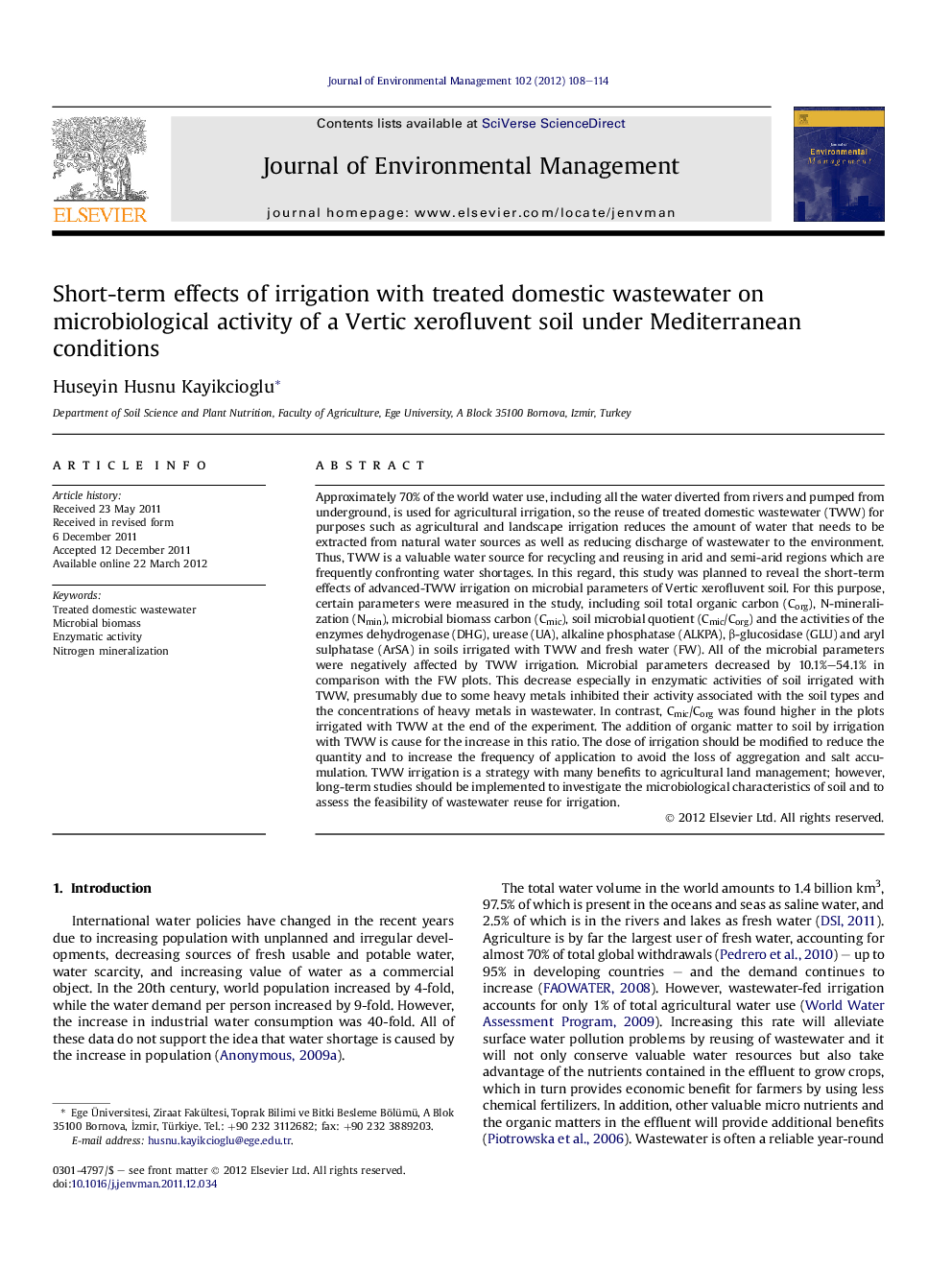| Article ID | Journal | Published Year | Pages | File Type |
|---|---|---|---|---|
| 1056818 | Journal of Environmental Management | 2012 | 7 Pages |
Approximately 70% of the world water use, including all the water diverted from rivers and pumped from underground, is used for agricultural irrigation, so the reuse of treated domestic wastewater (TWW) for purposes such as agricultural and landscape irrigation reduces the amount of water that needs to be extracted from natural water sources as well as reducing discharge of wastewater to the environment. Thus, TWW is a valuable water source for recycling and reusing in arid and semi-arid regions which are frequently confronting water shortages. In this regard, this study was planned to reveal the short-term effects of advanced-TWW irrigation on microbial parameters of Vertic xerofluvent soil. For this purpose, certain parameters were measured in the study, including soil total organic carbon (Corg), N-mineralization (Nmin), microbial biomass carbon (Cmic), soil microbial quotient (Cmic/Corg) and the activities of the enzymes dehydrogenase (DHG), urease (UA), alkaline phosphatase (ALKPA), β-glucosidase (GLU) and aryl sulphatase (ArSA) in soils irrigated with TWW and fresh water (FW). All of the microbial parameters were negatively affected by TWW irrigation. Microbial parameters decreased by 10.1%–54.1% in comparison with the FW plots. This decrease especially in enzymatic activities of soil irrigated with TWW, presumably due to some heavy metals inhibited their activity associated with the soil types and the concentrations of heavy metals in wastewater. In contrast, Cmic/Corg was found higher in the plots irrigated with TWW at the end of the experiment. The addition of organic matter to soil by irrigation with TWW is cause for the increase in this ratio. The dose of irrigation should be modified to reduce the quantity and to increase the frequency of application to avoid the loss of aggregation and salt accumulation. TWW irrigation is a strategy with many benefits to agricultural land management; however, long-term studies should be implemented to investigate the microbiological characteristics of soil and to assess the feasibility of wastewater reuse for irrigation.
► We investigated the effects of treated domestic wastewater irrigation on soil microbial parameters. ► All of the microbial parameters were negatively affected by this irrigation. ► In contrast, Cmic/Corg was found higher in the plots irrigated with treated wastewater.
